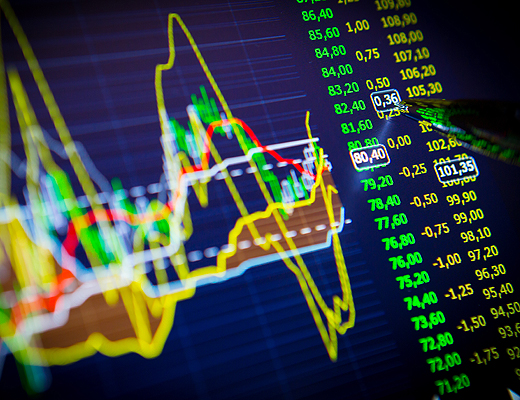Key News:
- After Alibaba’s shares leaped 38 percent on their first day of trading on Friday
- A decrease in investor purchases prompted an unexpected decline in sales of U.S. existing homes in August, indicating the housing rebound is not yet self-sustaining.
- Financial markets in Britain and around Europe generally welcomed Scottish voters’ rejection of independence on Friday.
Global News:
- Islamic State Onslaught Spurs Mass Exodus of Syrian Kurds
- China’s growth trajectory is still pointing down, even after an $81 billion liquidity injection.
- European stocks fell the most in more than three weeks.
Market Overview:
Equity indices sit near their lows at midday with small caps leading the retreat. The Russell 2000 (-1.4%) and Nasdaq Composite (-1.2%) trail the S&P 500 (-0.7%), while the Dow Jones Industrial Average (-0.4%) has resisted some of the selling pressure.
The top-weighted sector-technology (-0.8%)-trails the broader market, while the materials space (+0.1%) has been able to stay in the green thanks a boost from Sigma-Aldrich (SIAL 136.53, +34.16), which has surged 33.4% after agreeing to be acquired by Merck KGaA (MKGAF 89.50, 0.00) for $140.00/share, representing a 37.0% premium to Friday’s closing price.
The countercyclical side has fared a bit better with consumer staples (-0.1%), telecom services (-0.5%), and utilities (-0.5%) trading ahead of the broader market, while health care (-0.7%) lags amid weakness in biotechnology. The iShares Nasdaq Biotechnology ETF (IBB 271.14, -4.09) is lower by 1.5%.
Fixed Income:
Treasuries are near their highs with the 10-yr yield down two basis points at 2.56%. Treasury market inflation bets dropped to a 14-month low. The price of the 2.375 percent note maturing in August 2024 rose 3/32, or 94 cents per $1,000 face value, to 98 12/32. The last three-day rally ended Aug. 25.
Foreign Exchange:
Australia’s dollar fell 0.6 percent to 88.69 U.S. cents at 12:58 p.m. New York time and touched 88.53 cents, its lowest level since Feb. 4. It dropped 0.7 percent to A$1.4469 per euro. The euro was little changed at $1.2832 after rising as much as 0.3 percent. It sank earlier to $1.2816, the weakest level since July 2013. The U.S. currency declined 0.1 percent to 108.91 yen, and the euro slipped 0.1 percent to 139.77 yen.
Week in numbers:
- Asian deals were up more than five times to $41.3 billion last week from $7.7 billion the previous week
- 1.3% Annual sales growth in the global beer industry since 2004
- 4.3% Growth in beer sales in the Asia Pacific Region last year
- 73% Share of Family Dollar stores located within a three mile radius of a Dollar General
Key Issue of the week:
– Inversion?
An inversion is basically re incorporating a company oversees in order to reduce the tax burden on income earned abroad.
– So what’s the trend?
Hedge funds and investment advisers happen to own a high percentage of shares of companies planning these particular M&A inversions. When observing nine leading companies (charted) that have announced planned inversions hedge funds and investment advisers together own within the average range of 72.22% and 97.52%.
M&A Overview
Last week was the busiest 7 day mergers and acquisition period since the week ended August 15th which was skewed by one massive deal by Kinder Morgan Inc. Whom plans to acquire three subsidiaries in a series of transactions that are valued at almost $70 billion, including debt. The technology sector was also active last week as SAP SE announced a subsidiary would acquire software company Concur Technologies for $7.2 billion.
The pace of all global mergers and acquisitions has picked up steadily last week. 16 new corporate mergers valued at $1 billion dollars or more were announced. Deal making activity totaled more than $105 billion in the week ending in Sept 19, more than double the $43.7 billion announced the previous week.
The largest deal was Chinese energy company Sinopec Marketing as it plans to sell a 30% stake in its retail business to a group of investors for $17.5 billion. The second largest deal was Telefonica revised offer to buy Vivendi’s Brazilian broadband unit GVT in a deal valued at $10.3 billion.
Article submitted by Daniel Rodriguez, Daniel Baez and Sebastian Giraldo-Castaño of the Capital Markets Lab (CML). To learn more about the Capital Markets Lab (CML) please visit https://business.fiu.edu/capital-markets-lab/.





